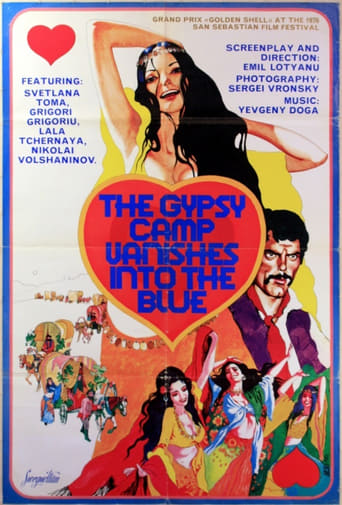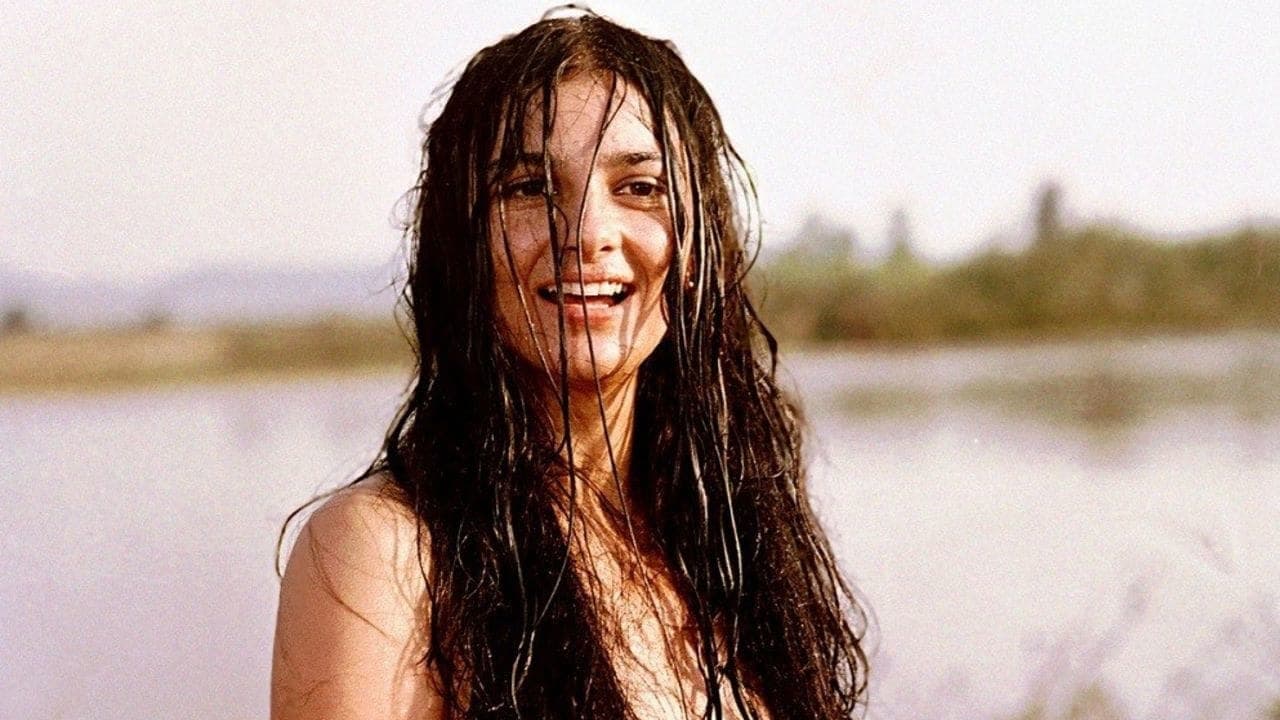kosmasp
A movie that could only have been made in the 70s. Very free and very lyrical. Poetic but still very earnest with a touch of nudity. While nudity nowadays is not a big deal, I suppose it was back then (even through all the Flower Power movement). And therefor it got special mention before the screening (this year, 2010).This shouldn't be the reason for you to watch the movie though. There is other movies out there ready to be explored, if you are looking for that kind of thing. This movie on the other hand, just lives the free spirit and does not take a particular road. Or tells a great story for that matter. It's all about humans and gypsies in general (though that might not be the political correct term to call them). And a promise the movie makes, that is kept in the end ... not that you did not see that coming ... just saying
Ally M.
Zobar steals horses to make a living. Just like most of the members of his ethnic group, he doesn't have a lasting job in a precise place, he goes around searching for targets, then steals the horses and sales them to a local wealthy man. During one of these actions he and his fellows are surrounded by the local police and Zobar gets hurt in the chase. After escaping his followers, he is saved by a beautiful witch who heals his wound. He instantly falls in-love with her, but she vanishes from his sight. He returns to his lover, a beautiful blonde woman who's not a gypsy. In the meanwhile we see a local noble man who desperately seeks the attention of Radda, the beautiful witch, but just gets mocked by her. Zobar gets imprisoned after his father betrays him when under the menace that the policemen would shoot the horses of his "satra". He manages to escape just before being hung, but the friend who helps him in doing so gets killed in the chase. By now you would think that the two (Zobar and Radda) are destined to be together and everything works out to help them accomplish their destiny. They finally meet and spend romantic moments together, vowing to love one another. The morning after he proposes to her in front of all the members of her group, but she refuses him saying that she won't accept unless he bents on his knees and kisses her right hand. Instead of doing so the proud Zobar stabs her in the heart and gets himself killed by Radda's father. The whole "satra" gathers around the two lovers and mourns them. The most surprising moment of the movie, at least in my opinion, was the ending. We are far too used to sweet Hollywood endings, so it was quite disturbing, but at least it was different;) Otherwise I think it beautifully pictured the customs and way of life of the gypsies in that period (and things haven't changed a lot in this sense). As for the actors, someone here said that they were all Russians. Yes, it's true, when the movie was made they were all born in the Soviet Union, but you must admit that some names here couldn't be more typically Romanian: G. Ciubotaru, Dumitru Mocanu, even the leads Grigore Grigoriu and Svetlana (tipically Russian name) Toma (Romanian). There's a simple explanation for that: they were born in what is now The Moldavian Republic, so it's easy to understand why their names sound Romanian:) However, they all did a good job. Sometimes the intensity of the glances between the actors spoke much more than words would have done. Furthermore Radda's glance looked hypnotic more than once as she was a witch and managed to predict the future and had a special relationship with animals. I'm afraid I can't be objective enough to vote this movie as it isn't at all the kind of film that I normally watch... I actually prefer action-thriller-mystery ones and yesterday I watched it because my mother wanted to see it:p However, for someone who is interested in the life of the traveling gypsies in the early XXth century and in their typical music and dancing, this is really good!
Armand
A poem about freedom and love. A strange world of joy, ambitions and desires. A form of escape and a colorful dream.Emil Loteanu was a special director for the way chosen. His movies, products of Sovietic cinema, are, very often, touching skits of a raw cardboard's space. The stake- to prove the identity of a small nation in a empire. The means- Russian art of purlieus. Accent on the dramatic themes and emotions like only message."Tabor ukhodit v nebo" is only a picturesque film about a imaginary community. His importance is not small because the Gipsys are the product, in the self-image ,of this movie, slice of a possible golden age at the beginning of XXth century. In same time, it is a good introduction to Kusturica filmography, with the aspects of a ambiguous Balkan's life, with songs and carousals with barbarian persistent taste, with full of color atmosphere and any way of business. So, a good film for Bovaric public, for the Kakania's nostalgics, for amateurs of subtle kitsch, for the fans of actors, for old Gipsys or dreamers. But, in fact,it is only a ethnographic foray in Maxim Gorki's pathetic universe. Eastern Europe- like a strange endless Gypsy's song.
Galina
Based on a short story "Makar Chudra"(1892), the first published literary work by the famous Russian writer Maxim Gorky, the colorful, filled with the songs, music, dances, horses, and beautiful scenery, the ultimate melodrama "Tabor Ukhodit v Nebo" tells the story of the fatal love between proud rebellious Gypsy girl Radda and the young horse thief Loiko Zobar. There were no horse that Loiko could not steal and no girl who could resist him...until he saw Radda. Raddas's rare beauty and strong will had attracted to her rich and noble Sialdi who was ready to give up everything to be with her but she only laughed... Radda and Loiko were meant for each other but more than love each of them valued their freedom and pride. What started as a musical dramedy set in the Gypsy camp in the beginning of the 1900s somewhere in Bessarabaia (Now Moldova) which had belonged to the Austro-Hungarian Empire ended up in the final that is worth of the best Shakespeare's tragedies. I saw this movie for the first time many years ago but some of its images have been imprinted in my memory since: Radda stops the wild horses with just the look in her eyes; topless Radda is taking off her long colorful skirts, one after another and there are dozens she is wearing and this is such a sensual scene which was shot for the Russian movie back in 1975; the final - two horses, black and white without their riders move slowly alongside and disappear in the horizon...Very entertaining, beautiful and poetic film is available on DVD from RUSCICO.com. Highly recommended8-8.5/10


 AD
AD



